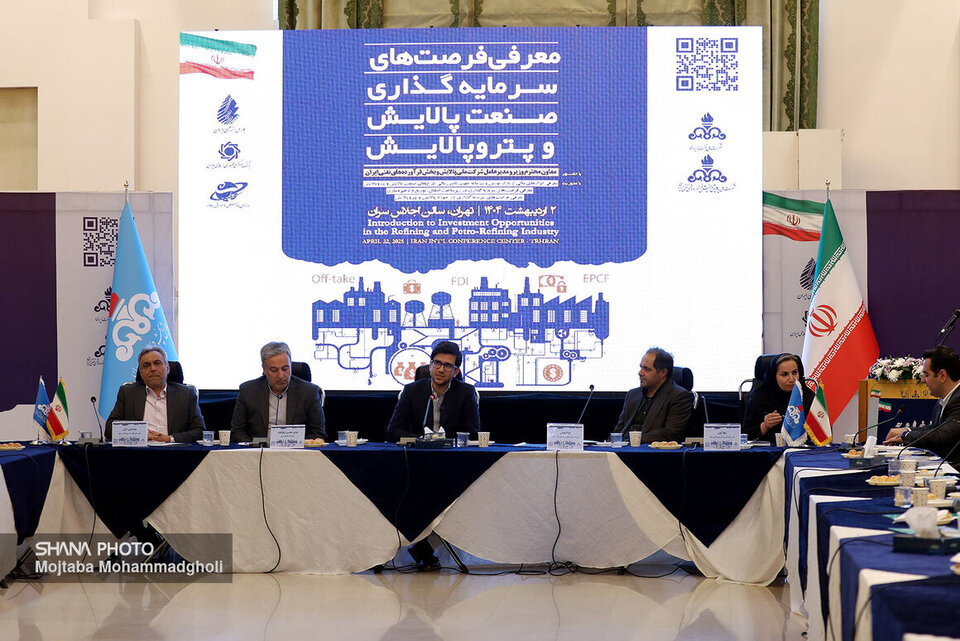Mohammad-Sadeq Azimifar spoke Tuesday at the specialized meeting "Introducing Investment Opportunities in the Refining and Petrorefining Industry" during the Transformation in Investment and Development in Iran’s Upstream Oil and Gas event. He noted that under the Seventh Development Plan, daily gasoline production must reach 129 million liters and gas oil must increase to 130 million liters, while heavy refining products should account for 20% of total output.
He added that the 14th administration is pursuing a new approach to achieve national upstream goals through optimized investment and revised consumption policies.
Despite 35 new refining projects requiring over €60 billion in investment, progress on these projects has averaged below 10%, with challenges growing annually, Azimifar said. He identified key issues, including unclear investment prospects and excessive government interference in financial matters, which have eroded investor confidence and slowed development.
Delays in completing new refineries and inefficiencies in planning have resulted in only three to four refineries being operational over decades, all with heavy state support, he added. Misaligned subsidy policies with economic realities have further hindered effective investment.
Azimifar stressed that more collaborative meetings and promoting investment opportunities could restore investor trust and accelerate sector growth. He urged the Islamic Consultative Assembly to play a stronger role in removing barriers and shaping supportive policies, adding that resolving operational hurdles and ensuring a secure investment climate would pave the way for sustainable refinery development.
He highlighted the need to prioritize economically viable refining projects due to limited resources, focusing on high-return initiatives to maximize investment efficiency.
A set of priority refining projects will be packaged for investment, he said, with discussions at the meeting addressing financing challenges and the roles of public and private entities. Attendees announced the formation of a committee comprising capital market experts and financial specialists to hold monthly meetings on effective funding tools.
Azimifar cited leveraging legal mechanisms, such as Article 44 of the Seventh Development Plan, which allocates 300,000 barrels of crude oil for domestic refineries via barter. The 1404 budget also designates 50,000 barrels of crude as a financing tool to boost sector appeal.
Article 45 of the plan offers another support measure, granting a 5% feedstock discount to refineries investing in expansion. Implementing these policies, he said, would accelerate refinery development.
Reiterating the need for transparent investment processes and reduced bureaucracy, Azimifar called for stronger public-private collaboration to attract investment and speed up domestic refinery growth.
He expressed hope that new policies would enhance production standards and ensure stable petroleum product supply.


Your Comment